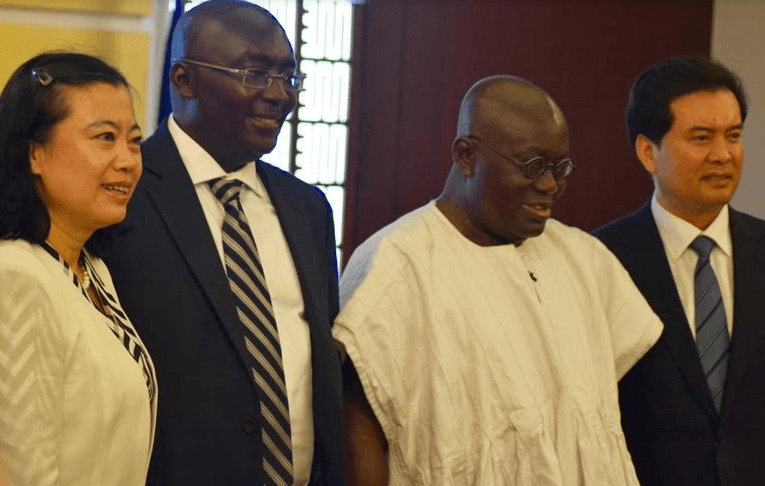The Vice President, Dr. Muhamoud Bawumia recently led an economic delegation to the Peoples Republic of China and came back home with a handsome financial package — a whopping 15 billion dollars loan.
Dr. Bawumia insists it is a grant and desperately wants Ghanaians to believe his version. To this end, he has held press conferences where he offered varied explanations for the Chinese “monetary gift” but is yet to convince many that it is actually a grant — money that we don’t have to pay back.
The incredibly huge monetary gesture immediately touched off talk of China angling to do what it does best: using its fabulous wealth to bamboozle yet another hapless African country to sign away the rights to its vast deposits of natural resources.
Bawumia himself fed this narrative with his frank assertion that the loan is nothing more than a quid pro quo; China doles out the money and is awarded access to Ghana’s natural resources, specifically bauxite.
“It makes economic sense for Ghana to use what it has to get what it wants,” the veep told reporters after his return from Beijing last week.
Ghana, like most developing nations needs financial help to promote growth and prosperity for its people. To achieve these noble goals, it goes to the international capital market to seek favorable financial terms an China readily provides that.
China is the new kid on the block with plenty of money to spread around. Its financial footprint in Africa is, simply put, frighteningly huge. Indeed, it is financing infrastructure projects around Africa with a flurry never seen before. And in return, it is given the right to explore and extract the continent’s vast deposits of oil, bauxite, cobalt, copper and magnesium.
Couldn’t we have gone to our old lenders, the IMF, the World Bank for the much needed capital to finance our economic resurgence? some will ask.
Of course, we could have, but the Europeans and Americans would have imposed conditions that, frankly Ghanaian officials would have rejected, like cleaning out corruption and using the loans for their intended purposes.
China, on the other hand, does not attach conditions to its loans. In fact, it has a history of looking the other way —- deliberately ignores corruption and violation of human rights that are commonplace in many African countries. Which is to say that even if parts of the 15 billion dollars loans were to be squandered, there won’t be nary a peep from the Chinese.
Not unexpected, the main opposition party, the NDC, sees the loan as a massive and complete sell out by the ruling NPP. Predictably, it has railed against it non-stop and at one point even called for a probe into how the loan was secured and its intended use.
What else do you expect an opposition party to do but to engage in partisanship. The NDC thinks it is paying the NPP back with its own medicine. Lets be honest here: the NDC is enjoying every moment — mocking the strenuous explanations the NPP puts out daily to justify the gargantuan Chinese loan.
And, the party vividly remembers with bitterness and glee I must add, the constant barrage of criticism directed at it by the NPP then in opposition for allegedly going on borrowing sprees to finance NDC’s development projects.
Now that it is in power and desperate to fulfill its campaign promises of reviving the economy and building infrastructure but confronted with empty national coffers, the NPP is replicating what its fierce rival did — go cup in hand to wealthy nations and ask for financial aid. Let’s just say political and financial realism has hit the NPP hard in the face like a sledgehammer.
I would be the first to admit that the loan will go a long way to solve some persistent economic problems at least temporarily. I am therefore hesitant to describe the government’s move, its leverage of our natural resources for an eye-watering loan as boneheaded, reckless and ill-thought.
But for a nation whose financial house is not in order — we are indebted to western creditors, the IMF and the World Bank and not to think of private western lenders — the loan would be a burden on our nation for generations to come and would tie us intrinsically, like Siamese twins to China.
And let’s remember this: along the way, our relations with China, for political and economic reasons, may suffer some ups and downs and be strained. We may try to wriggle out of it, but our financial obligation to the Asian giant won’t permit us to just walk away.
We are in a bind, and that is putting it charitably: our hands are in China’s mouth and it can bite us anytime it so chooses and there is nothing we can do about it. That is what international loans do to poor countries who leverage their natural resources to finance development projects.


